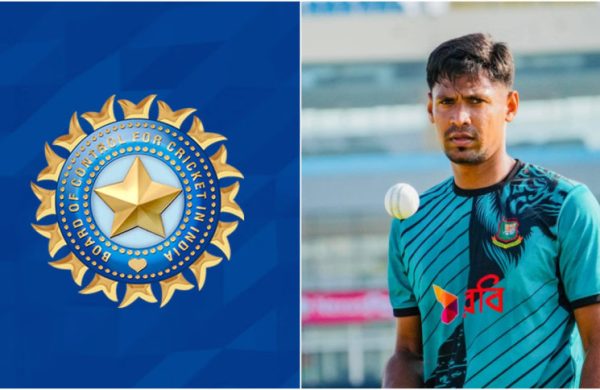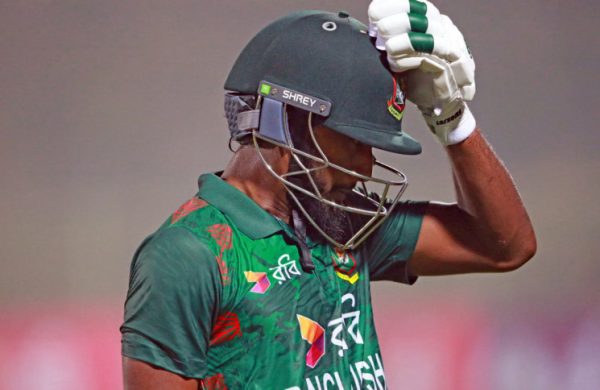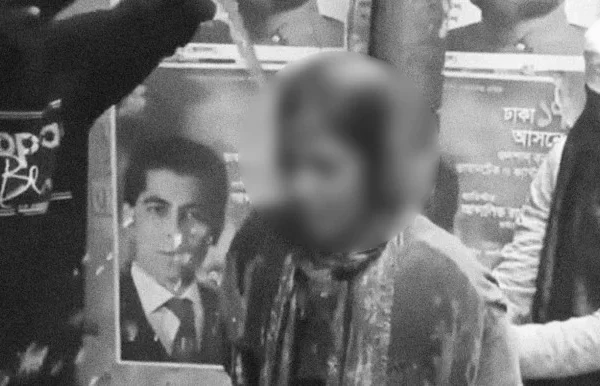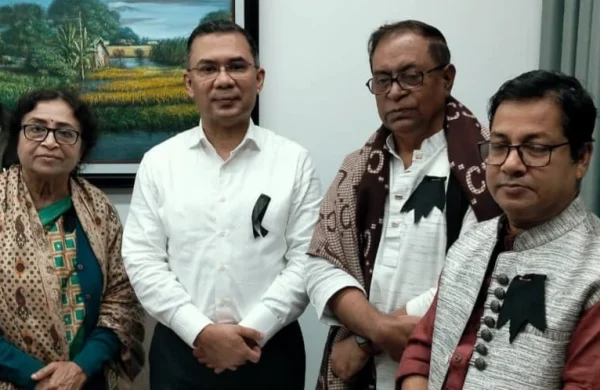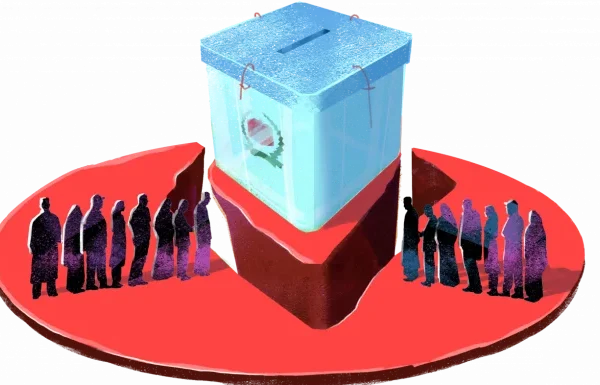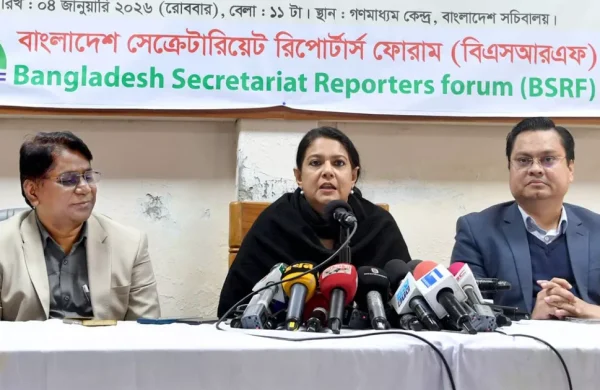Political Leaders, Etiquette and Statesmanship
- Update Time : Monday, July 8, 2024

–Syed Badrul Ahsan–
Politics is consistently a striving for power, the better to promote public welfare. It is an occupation where the preoccupation on the part of those who practise it is a regular offering of ideas to people, which again involves them in fierce competition with one another on the best means to popularising their policies.
Politics is all about rivalry where ideas related to a nation’s future are the central theme. By that standard, political leaders are not enemies of one another but individuals engaging in healthy undertakings that have the interests of people as core beliefs. It is not for politicians to denigrate one another, to humiliate one another through public pronouncements. It is respect which matters.
In politics, playing to the gallery is bad form. It is for politicians to offer alternative visions of the future to their people in the clear expectation that the electorate will judiciously choose from among those alternatives the course they believe holds the wherewithal of a decent future for them. Every election campaign, assuming that democracy is on solid ground and yet means to deepen its roots, is therefore an exercise for political leaders to barnstorm the country and relate to voters, for these voters matter on election day.
We conclude, therefore, that while politics is a campaign for the attainment of power, it is done best through the civility which the seekers of power demonstrate toward one another. It is this civility which in the West remarkably comes alive once an election is over.
Such an image was held forth the other day when the British electorate made their decision known on who they wanted to speak for them in the next five years. KeirStarmer’sLabour Party stormed to a historic victory, winning 412 seats in the House of Commons against the Conservatives’ 121 and the Lib Dems’ 72. It is thus a sweeping change in Britain which will last a decade or more.
Governments which remain in office for too long, as the Tories did for as many as fourteen years, in the end succumb to fatigue. And when governance becomes a matter of fatigue, it is safe to think that the ruling party has run out of ideas, that it is bereft of all those inspirational points of light which once enthused citizens into voting for it.
Rishi Sunak’s defeat was therefore a consequence of that fatigue, though strictly speaking one cannot put the entire blame for the misfortunes of his party on his shoulders alone. With the Tories seeing the arrival and swift departure of four Prime Ministers before Sunak in the past decade, all bearing the burden of ill-conceived or badly working policies, it remained for Sunak to suffer the slings and arrows of political misfortune.
But this colossal electoral defeat did not diminish this idea of political civility. On the steps of 10 Downing Street, Sunak’s farewell remarks, like those of many predecessors who went down in elections before him, were a model of grace and humility. He took responsibility for the calamity which had befallen his party and said sorry.
He then praised Starmer, his incoming successor, as a decent and well-meaning individual committed to promoting public welfare. And if Sunak was forthcoming in his appreciation of Starmer, it was then for the new British leader to reciprocate the sentiments when he arrived at 10 Downing Street.
No bitterness, no anger, no ill-feelings were there in all this process of a transfer of power from one party to another. And that is the way it has been in western politics. A smooth political transition has been an integral part of the democratic tradition. No defeated leader (unless one speaks of Donald Trump’s unspeakable behaviour following the 2020 US presidential election) has ever complained that he and his party have had their electoral victories stolen, for in the West rigging is not the rule and hanging on to power has never been part of heritage.
Decency matters in politics, as in recent times Indians have experienced it. The BJP-led National Democratic Alliance and the I.N.D.I.A group led by the Congress, despite the acrimonious nature of their electoral campaigns, were quick to accept the outcome of the vote. No one complained of any wrongdoing at the ballot box, for no wrongdoing took place. On the opening day of the new Parliament, NarendraModi and Rahul Gandhi shook hands in the chamber. It was a sight that cheered political observers, who of course knew that these two men would wage bitter warfare over policies in the next five years.
It is decency, away from loud articulations of the issues, which has underscored the Indian political tradition. It was a Congress-led government which many years ago sent AtalBehari Vajpayee, then in opposition in the LokSabha, to Geneva to speak for India on the Kashmir question.
In the United States, moments after Ronald Reagan had been sworn in as the country’s new President, Iran’s ayatollahs freed the US embassy officials they had held as hostages for 444 days. President Reagan asked Jimmy Carter, who he had just defeated at the election, to receive the returning hostages at an air force base in West Germany.
That was magnanimity. It was political decency at work. At the height of the Bay of Pigs crisis in 1961, President John F. Kennedy invited Richard Nixon, his vanquished rival at the 1960 presidential election, to solicit his advice on the situation. He did not have to do that, but western politics being what it is, Kennedy felt he needed to bank on the wisdom of Nixon, who had had eight years of experience as Vice President under President Dwight Eisenhower.
When a new US President enters upon office, particularly after defeating a predecessor who has been occupying the White House, he is gracious in appreciating the contributions of the man he has beaten at the election. Jimmy Carter did it for Gerald Ford, Ronald Reagan did it for Carter, Bill Clinton did it for George HW Bush.
These are instances for politicians around the world to learn from. That politics is a crusade for its practitioners to sell their policies to the people and not a competition which has them turn into enemies is the message which has ceaselessly come to us in the Third World from the West. And yet, even as we speak of the West, there are the instances of political etiquette we have closer to home.
In February 1969, freed from prison, Bangabandhu Sheikh Mujibur Rahman travelled to Rawalpindi for the round table conference called by President Ayub Khan. Bangabandhu and Ayub shook hands. It was a defining image of a long incarcerated political leader and his ruthless tormentor treating each other with respect.
In these post-modern days, it is important that politicians do not denigrate one another, do not humiliate one another. If one speaks of Trump, the former US President is an aberration, not an example of good standards in politics. In western politics, debate between top leaders has turned into the norm.
In 2022, Emmanuel Macron and the hardliner Marine Le Pen debated each other on television before the French presidential election, without making a casualty of civility. In the recent past, before audiences, KeirStarmer and Rishi Sunak waged battle on a whole plateful of issues concerning citizens. They remained civil and at the end of the debates shook hands before going their separate ways.
In the West, political leaders do not accuse one another of conspiracies and intrigues. They do not trot out themes of their rivals selling out the country to foreign powers. They do not ignore one another at places where they happen to be present at the same time. They do not demonise one another.
And that is what democracy is all about. It is more. It is about statesmanship.
____________________________________
Syed Badrul Ahsan writes on politics, diplomacy and history



